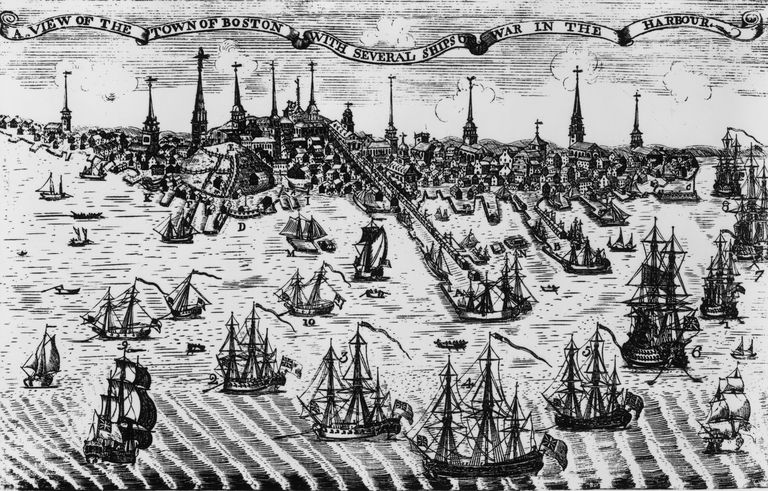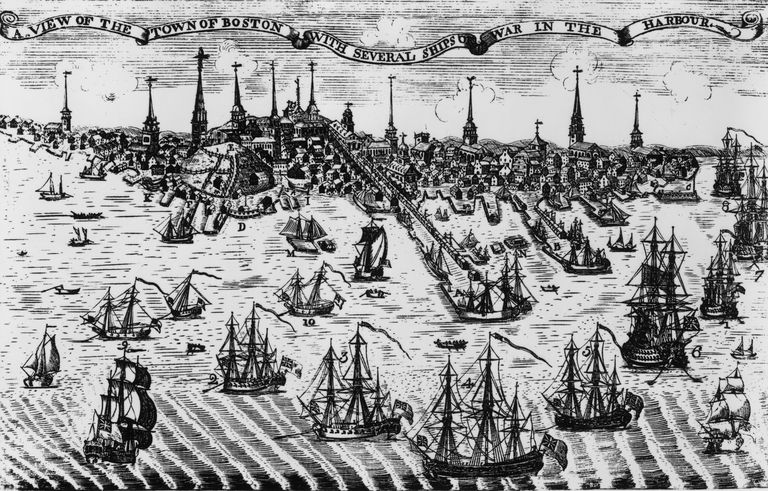In the buildup to the American Revolution, British Parliament struggled to assert authority over the distant Thirteen Colonies. Before the escalation of troop involvement that would ultimately lead to the Colonies declaring their independence, Parliament endeavored to establish their control through taxation. This taxation proved a central sticking point to the Colonies, and dislike of taxes has remained a recurring theme of many political platforms throughout the United States’ history as a result.
Though the Stamp Act is perhaps the most well known of these taxation efforts, other similar bills were passed and repealed over the years as the British government sought to assert control over the distant American colonies. One of these taxes was on sugar, and knowing what was the Sugar Act not only delves into Parliament’s feud against the Colonies but also sheds light on the broader British economy.

What was the Sugar Act?
The Sugar Act, also known as the Plantation Act, or, tellingly, Revenue Act, of 1764 was partially modification on the soon to expire Sugar and Molasses Act of 1733.
Under this act, Colonial merchants paid a tax of six pence per gallon on foreign molasses. The British colonies in the Caribbean made molasses, of course, but the British heavily discouraged trade between their colonial holdings. This policy was because people’s understanding of economics at the time failed to understand how commerce worked.
As a reminder, there are twelve pence in a shilling and twenty shillings to the pound. A skilled artisan could make twelve shillings a day in Colonial America, but they were the minority. In any case, the British government discouraged specie circulation in the Colonies, so much of the international commerce would have been on credit.
It is worth noting that the Sugar Act covered far more than just sugar and molasses. The act included duties for indigo, coffee, wine, linen, and other odds and end the colonials could obtain from outside Great Britain more cheaply than paying them as the middlemen.
Colonial merchants disliked paying all those annoying taxes, and they especially disliked having to have their trade hampered by the British Government’s restrictive commerce regulations. The answer, then, was smuggling. Smugglers imported and exported goods rather than pay pesky import or export duties that cut into their profit margins. The Colonials reasoned that if they could trade with other colonies, they wouldn’t need to smuggle, but they could not, so they did.
In response to the Colonial smuggling, Parliament revised the Sugar Act. The tax on molasses, especially on non-British molasses, roused many colonists’ anger, most of them in New England, the mercantile center of the Thirteen Colonies. This act and similar acts passed around the same time started the Colonial cries of taxation without representation. Due to the distances involved, no colonial representatives sat in Parliament, and Parliament felt it had sway over the colonies. Due to slow communication, the Americans had spent decades more or less on their own. They had started to think of themselves with that independence in mind.
Besides the Parliamentary desire to assert control of the Colonies, there was also the need to balance the books. The recent French and Indian War had cost the British government a lot, and the new acquisition of French Canada settled too sparsely to make money back quickly. Taxing the colonies, they had ignored as a significant revenue source until then, seemed a logical conclusion. The lack of consultation by Parliament to the Colonies set the stage for a power struggle that would continue for decades, with obvious results.
How Did The 13 Colonies React?
At the time, colonial Americans still considered themselves loyal British subjects. The Sugar Act was proclaimed and put in place without the consent or consideration of the Colonial governments. This affront started rumblings amongst them, though, as noted previously, most of the ire stemmed in the commercial center of New England.
Reactions to this Act varied across the Colonies. The most substantial response came from the merchants in the Northeast. From this focal point, discord spread further south, with varying results as the southern colonies were rural, had little need of imported luxuries, and tended to be less independently minded. In the north, influential merchants and politicians debated the Sugar Act and its implications for the Colonies and their relationship to the British homeland.
Still, discontent continued to spread across the Thirteen Colonies. Richard Bland, writing in 1764 in Williamsburg, Virginia –the colonial capital at the time- declared the following:
“If then the People of this Colony are free-born and have a Right to the Liberties and Privileges of English Subjects, they must necessarily have a legal Constitution, that is, a legislature composed, in Part, of the Representatives of the People, who may enact laws for the INTERNAL Government of the Colony, and suitable to its various circumstances and Occasions; and without such a Representative, I am bold enough to say, no Law can be made.”
In the meantime, sentiment against the Sugar Act continued to stir, especially in New England. Despite its small size, Rhode Island proved a significant hub for the molasses trade and grew increasingly vocal about the act and its ramifications for the Colonies. As with later Acts, it was less the matter’s financial costs, though the import duties on foreign goods could be quite high. It was more the lack of representation and taxation their passage represented. Parliament did not deliberate with the Colonies, but rather it dictated to them.
The economic costs of the Sugar Act were not insignificant, though. As the years passed, the cost of the extra duties would increase. This cost meant smuggling continued and would continue until the smugglers donned cannons and became pirates. Until then, Parliament continued to insist on the importance of their taxation, and the Colonies continued to complain.
What was the Impact of the Sugar Act?
In New York, the Colonies’ General Assembly prepared a petition to the House of Commons, which declared the following:
“The honorable House will permit us to observe next that the Act of the last Session of Parliament [Sugar Act], inhibiting all Intercourse [trade] between the Continent and the foreign Sugar Colonies, will prove equally detrimental to us and Great Britain. That Trade gave a value to a vast but now alas unsaleable Staple [sugar/molasses] which, being there converted into Cash and Merchandise, made necessary Remittances for the British Manufactures we consumed . . . .”
Though the Sugar Act roused the Colonies to protest Parliament about Britain’s relationship with the Thirteen Colonies, it was soon overshadowed by further, far more contentious decrees. The Currency Act and the infamous Stamp Act were quick to follow. These acts aroused the ire of the Colonies much further than the Sugar Act. While one could claim that molasses and wine were largely a New England issue, the taxes and currency limitations affected all thirteen of them.
The Stam Act quickly overshadowed the outrage felt over The Sugar Act. Still, the foundations of the rift between Parliament and the Colonies started with the earlier act. The power struggle between the Colonies attempting to assert their rights as British subjects and Parliament’s assertions of taxation would continue until their conclusion with the American Revolution.
Why Was The Sugar Act Important?
The reason why was the Sugar Act important is that it was the first act. It set in motion the grumblings between the Colonies and Parliament, grumblings that would erupt into revolution.
Parliament, for their part, had several reasons for the Sugar Act. First, the desire to revise outdated legislation, which is always a problem and was especially so back in the days of slow communication –the distance between Britain and the Colonies played a large part in the growing friction between the two. There was also the desire to cover the French and Indian War costs, which the British government felt the Colonies owed their share of due to how much of the conflict centered on the conflict between the Thirteen Colonies and French Canada.
Finally, Parliament sought to assert their long-neglected rights to levy proper duties on the Colonies. These taxes had been on the books almost since their founding but had been neglected and ignored due to the previously mentioned travel difficulties. The Thirteen Colonies saw the Act as an attack on their rights as British subjects, birthing outcries of taxation without representation. Though much of the anger stemmed from the mercantile hubs of New England, those further south also felt the anger.
This rage would only increase as Parliament enacted further acts, turning the grumbles of an assertion of their rights into a war to form their own country where people still grumble about taxes. Some historians ignore the Sugar Act in favor of the Stamp Act and other, more famous efforts to tax the Colonies, but the fact that it was the first means it laid the groundwork for the coming revolution and severing of one loyal colony from its homeland.
Sources
https://www.ushistory.org/Declaration/related/sugaract.html
https://babel.hathitrust.org/cgi/pt?id=wu.89071501472&view=1up&seq=64
https://avalon.law.yale.edu/18th_century/sugar_act_1764.asp
http://www.ouramericanrevolution.org/index.cfm/page/view/p0066
- Tulip Mania – The Story of One of History’s Worst Financial Bubbles - May 15, 2022
- The True Story of Rapunzel - February 22, 2022
- The Blue Fugates: A Kentucky Family Born with Blue Skin - August 17, 2021
